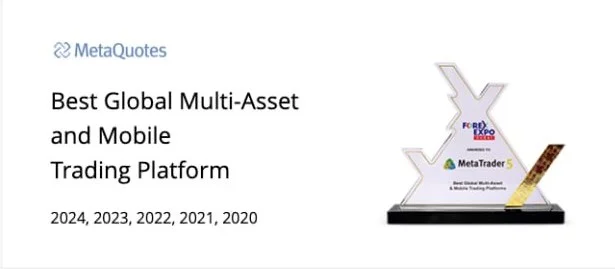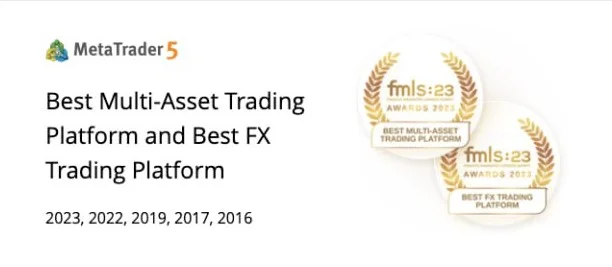When you open a trade with a B-Book forex broker, the broker takes the other side of your trade and does not hedge.
The broker keeps the trade “in-house”.
Remember, if your broker is taking the other side of your order and not hedging it with a liquidity provider (LP), it is taking 100% of the risk ご注文に関連する
This means that if the customer’s trade loses $1,000, the broker wins $1,000.
だが if the customer’s trade wins $1,000, then the broker loses $1,000.
Given that the broker can still lose, B-Book execution seems risky.
Why do brokers B-Book and exposes themselves to 市場リスク and losing money?
なぜなら most retail traders lose.
Think about it…
Between 74-89% of retail accounts lose money when trading forex.
This means 74-89% of retail forex traders are wrong.
With customers like these, the broker sees this as the equivalent of playing the game of “Heads or Tails” and betting “heads” with a coin that will land on “heads” 74-89% of the time!

If you know you’re going to be on the winning side at least 74% of the time, why wouldn’t you take that bet?!
The odds would definitely be in your favor that you’d win the bet.
Now imagine that you are a forex broker, and you know that your customers are wrong over 70% of the time, would あなた B-Book?
I’m sure you’d jump at the opportunity!
That’s even better odds than betting on black when playing roulette!

If a broker wants to “STP’ or “エーブック”, it also has to pay a spread to an LP to hedge your trade. This means it costs them money to hedge.
But why hedge if most customers are going to lose?
Brokers “B-Book” trades because it’s usually more profitable for them.
How B-Book Brokers Make Money
You buy from the broker and sell to the broker. If you make money, the broker loses money, and vice versa.
This means that when you lose, the broker profits.
And if all you do is keep losing, then the broker is slowly capturing more and more of the money that you initially deposited in your trading account.
Retail traders tend to act like gamblers, and a B-Book broker acts as the “house”.
Most new retail traders have no trading experience and it’s not uncommon for 80-90% of them to lose their entire deposit within 12 months.
There’s even a popular rule known as the “90/90/90 rule“. This rule states that “90% of new traders lose 90% of their money in 90 days.”
We’re not sure how accurate this rule is but whether it’s 90 days or 12 months, imagine being a B-Book broker with these customers.
All you have to do is sit back., relax…and WAIT for your customers to lose, then watch your profits start rolling in.

To provide a simple example, here’s how much money a B-Book broker makes over a year, assuming an average deposit of $1,000.
| Percentage of deposit that customers lose after 12 months | |||||
| # of Customers | Total Deposits | 60% | 70% | 80% | 90% |
| 100 | $100,000 | $60,000 | $70,000 | $80,000 | $90,000 |
| 500 | $500,000 | $300,000 | $350,000 | $400,000 | $450,000 |
| 1,000 | $1,000,000 | $600,000 | $700,000 | $800,000 | $900,000 |
| 2,000 | $2,000,000 | $1,200,000 | $1,400,000 | $1,600,000 | $1,800,000 |
| 5,000 | $5,000,000 | $3,000,000 | $3,500,000 | $4,000,000 | $4,500,000 |
| 10,000 | $10,000,000 | $6,000,000 | $7,000,000 | $8,000,000 | $9,000,000 |
While an average deposit size of $1,000 might be considered small, as you can see, being a B-Book broker can be extremely lucrative!
It can even be more lucrative if brokers can get their customers to deposit even larger amounts.
Now….just because B-Book brokers profit when their customers lose does NOT necessarily mean that they WANT their customers to lose.
Yes, it does benefit the B-Book broker if you lose, but all the hullabaloo about every B-Book forex broker is trading against you is either propaganda created by A=Book brokers wanting to “take market share” or traders who refuse to entertain the notion that they might actually be losing because they just suck at trading.
If a broker has just one customer and uses B-Book execution, then obviously, it wouldn’t want the trades that its ONLY customer makes to win.
That would mean the broker would be on the losing side every single time and would be running an unprofitable operation. So yes, in this specific scenario, the broker does want its sole customer to lose.
However, brokers don’t have just one customer, they have many.
What B-Book brokers really WANT is to pocket the spread AND not have to hedge (because hedging costs money).
The problem is that since the broker takes the opposite side of their customers’ trades, they are exposed to the risk of being on the losing side of the trade.
And if they don’t want to be exposed to this risk, they have to hedge unless…
What B-Book Brokers Like
A large number of similarly sized customers.
B-Book brokers prefer to have a lot of similarly sized customers who trade as frequently as possible and open long and short positions in equal amounts so the broker can take the opposite side of each of their trades.
This allows the broker to pocket the spread on both sides without taking on any market risk because positions are netted out.
For example, a retail trader A wants to buy 10,000 units of GBP/USD, so the broker offers 1.4105 ask price. At the same time, retail trader B wants to sell 10,000 units of GBP/USD, so the broker offers 1.4103 bid price.
So the broker buys GBP/USD for 1.4103 from retail trader B and sells GBP/USD for 1.4105 to retail trader A, pocketing 0.0002 または 2 pips from the spread.
Since both orders are the same size (10,000 units), they offset each other and which means the broker is not exposed to any market risk!
The broker would love to do this a gazillion times a day.
Loves fishes, but not whales.
B-Book brokers aren’t fond of high rollers or “whales”.
In gambling lingo, a high roller also referred to as a whale, is a gambler who consistently wagers large amounts of money at a casino.

If you think of a B-Book broker like a casino, it doesn’t want a customer that trades so big that any individual bet exposes the broker to so much market risk that it could cause it to “go bust” or “take the house down”.
What B-Book brokers prefer is that their customers trade in similar position sizes AND trade frequently.
For example, it’d prefer to have 100 customers all trade, on average, 5 mini lots than have 98 customers who trade 3 mini lots and then have 2 whale customers who trade 20 standard lots at a time.
This allows the broker to offset trades with each other rather than exposing itself to market risk.
Also, this reduces the capital that a broker needs to set aside (which would be used to pay out winning trades) because its customers are essentially, “making a market” for お互い.
What B-Book brokers love the most is when their customers are constantly trading and are not winning too much, nor losing too much.
The ideal scenario for a B-Book broker is where half its customers open long positions and the other half open short positions. And that their customers trade these opposing views frequently.
This would mean that all positions offset each other and the broker is not exposed to any market risk so little capital is required by the broker because any gains it’d have to pay to winning traders would be paid with the losses from the losing traders.
The broker would just constantly make money from the spread (and overnight financing charges) and not have to worry about going bust.
What B-Book Brokers Don’t Like
B-Book brokers don’t necessarily like customers who win consistently.
These customers will grow their account balance over time, allowing them to open bigger and bigger position sizes.
Eventually, they become too big and risky for the broker that their orders have to be hedged (A-Booked).
Remember, hedging costs money. And since the trade is now hedged, the broker won’t make money if the customer loses anymore. So its revenue is now limited to pocketing the spread (and overnight finance charges if the traders leave their positions open overnight).
They also don’t like traders who are too good because the trader is taking away money from their other customers.
A B-Book broker prefers that those profits are passed around more evenly among its customer base since it allows them to continue pocketing the spread from a larger pool of traders.
This is all fantastic news for brokers who run a B-Book, but it’s not so fantastic for brokers that strictly run an A-Book.
Every time an A-Book broker sees a losing customer, it is potential profit that is now lost forever.
With such a high percentage of new traders blowing their accounts, and the universe of new traders being finite, it is questionable if a strictly A-Book approach is sustainable in the long term.

It’s an extremely tough business for a retail forex broker to operate as 100% A-Book. It’s hard to make a lot of money and with margins so tight, it’s not surprising why brokers running a B-Book as an additional source of revenue.
That said, the B-Book model is considered challenging in terms of risk management. Especially, if you have lots of customers who open positions in the same direction and trade profitably.
If their customers win big enough, the losses for the broker could be enough to put the broker out of business.
This is the reason why most brokers use a combination of B-Book and A-Book execution, also known as a “ハイブリッドモデル".


